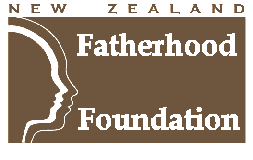Developing Support Services For Fathers
1999 Wellington Father's Forum
Harald Breiding-Buss, Coordinator of the Father&Child Trust Christchurch, outlines in his speech the importance of networking fathers, and the failure of institutions and agencies dealing with parents to see parenting as a team effort. Excerpts:
" I think in socialising and working as men with children around us, we [the men in a father's playgroup] are reinventing an age-old model of fatherhood, that has temporarily become lost. But more importantly, we are giving our children not only fathers, but a community. We are giving them not only one adult man in their lives, but several. We are giving them friends. We are giving ourselves parenting skills, without ever attending a parenting course. We are giving ourselves knowledge about children, and confidence in ourselves. All of us have become entangled in a community web of men, women and children.
It's all very nice to be a good father in your own home, spend quality time one-on-one and do what good fathers do, but, because you're on your own, you have nothing to compare your own parenting experiences to, to place what you do in a wider context of fatherhood. No matter how much effort you put into it, you are still left with the feeling that you could be a better father, because you do not really know what good fathers are like in real life.
What we need to realise is that no man can be everything, and what our kids need is not one perfect, providing, protecting parenting machine, but they need a whole variety of men and women in their lives. No one man on its own will get it perfectly right, no matter how good his support and his knowledge is. One man cannot shoulder the burden of teaching children all about the male roles by himself - this is how we make men feel bad about themselves, how we make them abandon their families, in spirit or reality, because they can't possibly live up to this image. But collectively, as a community, we can teach children all there is to learn about men and women and the rest of the world.
Strong communities can cope with the occasional absent father or mother. Families isolated from such communities can not.
Our communities don't need one fatherhood model for all men, but they need the househusband as well as the workaholic, and all the fathers in between.
The concept of a primary caregiver is totally flawed. We need to get this idea of primary caregivers out of our minds. It prevents us from seeing what we really need to see: that families are a team. They need help as a team. They need support as a team. If we take only one person out of this team and give only this person support, help, advice, information, expertise, practice it's not only that the other person misses out. We actually destabilise this team and help to destroy it. We're setting one person up as the "expert" and the other as the "helper" or "babysitter".
[With current services] there's the obvious problems such as the accessibility of services - parenting courses run at times most fathers can't attend, newsletters not using gender-inclusive language and imagery, playgroups all called "mum's groups", no childcare so one parent has to babysit, instead of both being able to go - the solutions are obvious.
But accessibility is really only the most visible sign of a deeper problem that consists of a lack of male volunteers, staff or professionals, a lack of knowledge in the system about male parenting and its significance, especially a lack of male input at management level, all of which creates a very female culture within an organisation that effectively shuts men out.”
